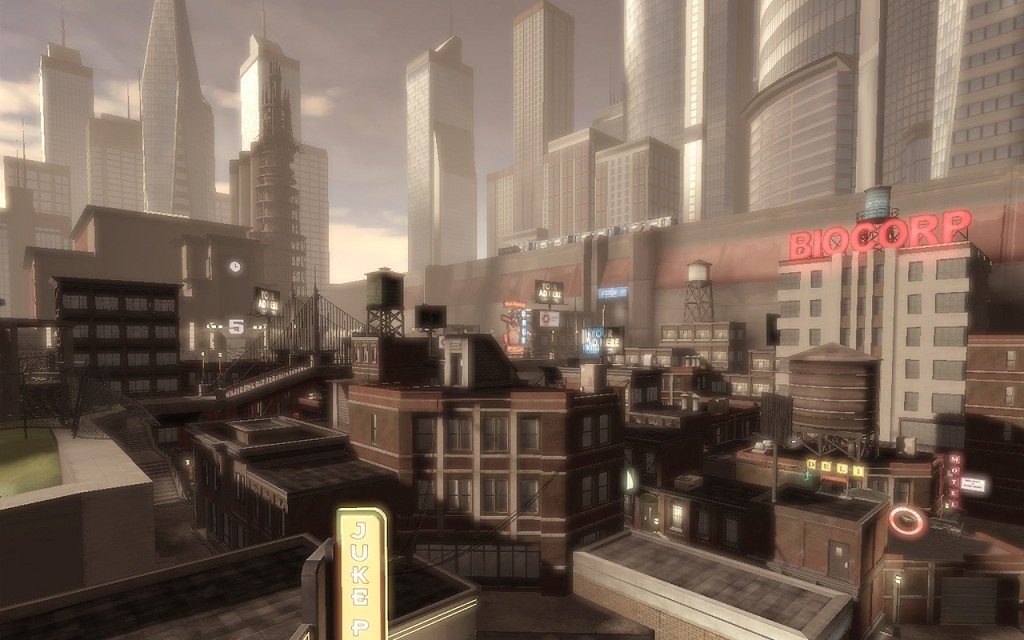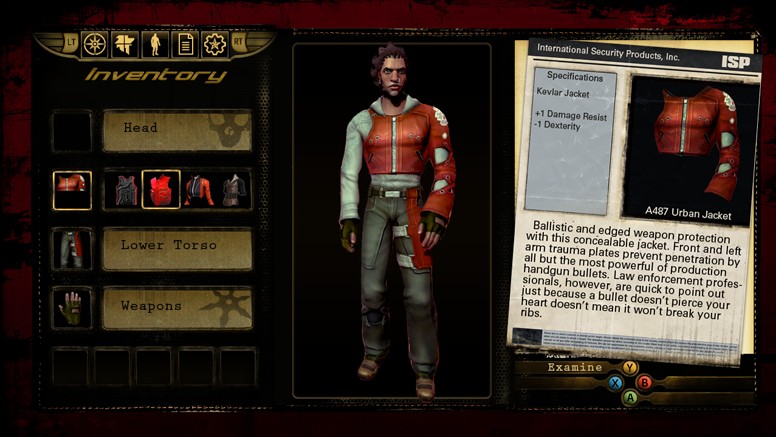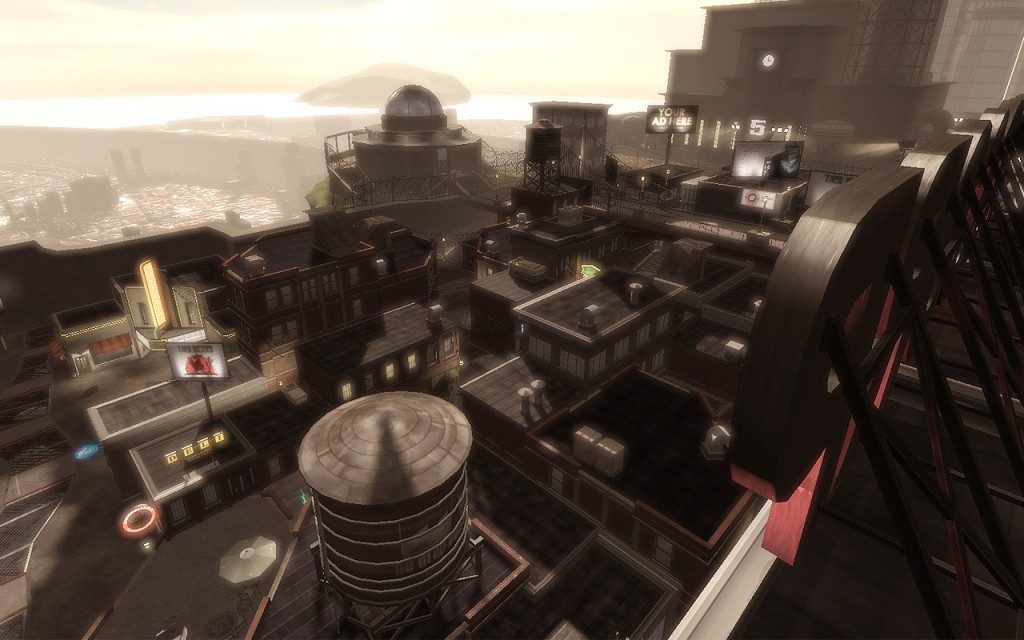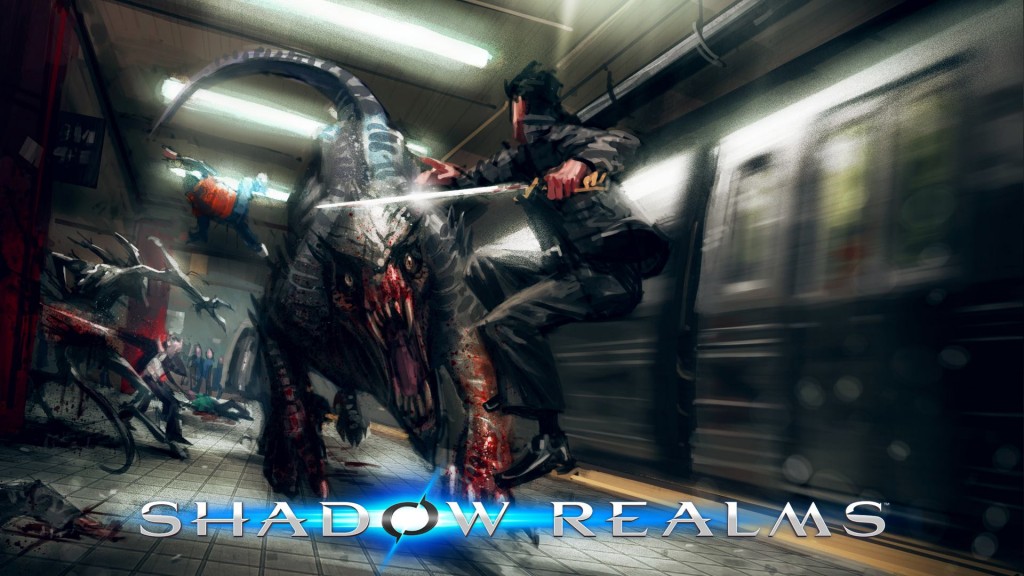Revolver is the codename for an ambitious action RPG that was in development for PC, Xbox 360 and PS3 by BioWare with the help of Big Sandwich Games. The project started around the same time as they were working on the first Mass Effect for Xbox 360 (announced in October 2005). While Mass Effect would have been their major exclusive for Microsoft’s home console (PC version of ME was released 6 months later), Revolver was meant to be their new multiplatform series and many resources were put into the project, taking about 5 years to develop.
Unfortunately, in 2009 the game was canned for a series of complex reasons and Bioware never officially announced Revolver to the public, without showing any images or releasing any info. While it’s already unfortunate that we will never be able to play an original BioWare title, the story behind Revolver becomes even more tragic when one finds out that the project was initially started as another, most-requested-by-fans game: a sequel to cult-following, martial arts RPG Jade Empire.
To understand better what happened to Jade Empire 2 and the importance of Revolver in Bioware’s market strategy, we have to dig down to remember what the studio was doing before being acquired by EA with 3 major ongoing series (Mass Effect, Dragon Age and Star Wars: The Old Republic). In the mid ’90s BioWare became a favorite team to western RPG fans thanks to cult classics such as the Baldur’s Gate and Neverwinter Nights series. At the end of the ‘90s they wanted to enter the console market and developed MDK2 for Interplay (published in 2000 for Dreamcast and PC), creating a quality third person action-shooter loved by fans and the critics. Unfortunately, it did not set the market on fire as they could have dreamed for.
The real console success for Bioware arrived in 2003 with the help of LucasArts, when they released Star Wars: Knights of the Old Republic for the original Xbox. Still, part of the success was because of the popular Star Wars series, not for a proprietary IP, and BioWare wanted it all. To try to create a new successful IP and to be able to win the average console owner, Bioware decided to embrace a more action oriented combat system suitable for controllers. The results was one of the best action RPGs released on the Xbox: Jade Empire, published in April 2005.
Only a few months later Microsoft released their Xbox 360 and Bioware was already working on 2 exclusive titles for the new hardware: Mass Effect and Jade Empire 2. As reported by Gamespot in November 2005, BioWare co-founder Ray Muzkya told to the press:
“BioWare definitely plans to continue the Jade Empire franchise […] The Jade team did a great job with the first game in that series; we have great teams working on all of our games here. We’ve also said in the past that we’re working on not just one, but two Xbox 360 titles. Enough said.”
We don’t know what exactly happened after that, but it’s possible that the not-as-high-as-expected sales for the original Jade Empire on the Xbox made the team rethink their Xbox-only strategy and the future of their Jade Empire IP. Bioware decided to also develop this new project for PS3, creating a new role playing experience that could have matched the titles from their golden age of Baldur’s Gate and Neverwinter Nights.
While the first-person-RPG-shooter style of Mass Effect sounded like the best type of game to sell to the Xbox / Halo crowd, Jade Empire 2 was chosen as the core to develop a new action RPG series for both consoles and PC. After only a few initial concepts, the mythical chinese martial-arts setting of Jade Empire 2 was dropped in favor of a more urban, near-future sci-fi settings. With the Jade Empire IP removed from the project, Bioware labeled it with the codename “Revolver”, a title without any particular meaning if not for the same initial letter of the R: drive on their shared network in which files for the game were stored. Other rumored codenames considered for the project were Rainbow, Razor and Riverdance.
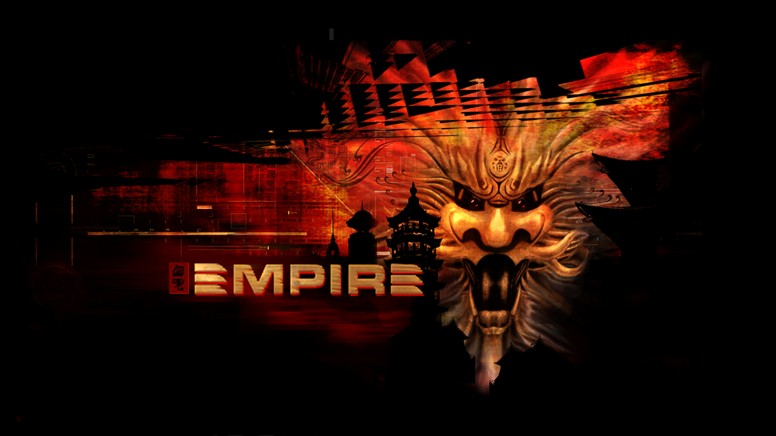
Even if Revolver was never officially announced by BioWare, in the last few years the internal codename was revealed through many different resumes, articles, interviews, reference footage and demo reels, allowing the world to find out about this lost title. While Revolver was already in development and Jade Empire 2 canned, in 2007 Eurogamer asked BioWare co-founders if they had plans to create a sequel to Jade Empire:
“It’s an IP, it’s a setting that we were really passionate about, and we still are. Both Greg and I were big believers in the IP… We’re just looking for the right way to deploy it.”
The studio really wanted to create the greatest western action RPG ever conceived and they started brainstorming ambitious features that could evolve the genre into a new standard. It seems that they exaggerated those ideas as while Revolver was still in its early stage, many of those features were already being cut. As wrote by an anonymous developer who worked on the game:
“While still working on Mass Effect, I’m included in some of the Revolver meetings. Revolver is at that interesting point where things start getting cut. This is good. The project had a whole lot of things up in the air, a ton of features that were each individually doable but way beyond the scope of the project when taken together (unless we had more funding than any other project and weren’t planning to ship until 2012).”
Even with many of its features removed, the game was still too big for BioWare. To fulfill their vision for Revolver they soon hired Big Sandwich Games to help with the development: a team funded by ex-Rockstar Vancouver employees. This could not have been just a coincidence as Revolver was meant to blend sandbox open-world urban games like GTA and classic action RPGs, using “super powers” (such as the ability to jump from one skyscraper to another) to move around the city, as in Crackdown, Prototype or Infamous.
Players would have explored the game’s world using exaggerated parkour movements, jumps and climbing as seen in the Assassin’s Creed series, while fighting enemies with the over-the-top, responsive combat style of Devil May Cry and Ninja Gaiden. All of this while keeping the same story-focused narrative of classic BioWare titles, but in non-linear branching paths. Writers and developers soon found out that merging a free roaming open world game with a complex narrative was not without problems:
“So we’re trying to figure out how flight messes up plots – which plots can be broken by you being able to fly into an area that you’d ordinarily have to walk through (and thus run into encounters that advance the plot). […] In Jade Empire, there were encounters that you could skip, definitely, but there was no way you were gonna skip an entire dungeon – the dungeons were just too expensive and too few in number. […] Right now, we’re focusing on making dungeons (where here, “dungeon” means “an enclosed area with a bunch of combat in it”) that give the players multiple reasons to go inside – so the player doesn’t have to make the choice between getting content or missing content for roleplaying reasons.”
Revolver wanted to allow players to enjoy a story focused RPG in a sandbox world by giving them multiple ways to receive important quests from different people. If we would miss (or kill?) a character with a key-quest, the game system would offer the same or a slightly different quest from another NPC, giving more freedom on how to freely explore the world while still following the main storyline that writers wanted to tell. A similar conversation system to the one used in Mass Effect was also planned, with dialogue to resolve as some sort of “puzzle” and different answers for different “morality alignments”.
A lot of time was spent on creating concepts and prototypes to better understand what the team would have been able to do. At some phase of development the team also experimented with a cell shading engine, similar to what happened to Borderlands. Before it was canceled in 2009 it seems Revolver was close to the end of pre-production, meaning that the core gameplay, story and features were set.
“We have a demo that looks better than many finished games and gives a pretty good look at the directions we intend to go on look and feel.”
What happened to Revolver? While the game was never officially announced or canceled, there are a series of possible reasons for its demise. Mass Effect became a HUGE commercial and critical triumph and every doubt about being able to be profitable with a new IP were wiped out: now BioWare had its own Star Wars series. They did not need to experiment with another new IP as Mass Effect was already more popular than what they could have dreamed. Mass Effect 2 was later released on Playstation 3 too and it soon became a consolidated multiplatform franchise.
If that was not enough, in October 2008 the studio announced another big project that in the following years would have taken a lot of their resources: Star Wars: The Old Republic, a MMORPG set in the Star Wars universe. To keep up with SW:ToR’s development, BioWare had to open a new studio in Edmonton and they even asked for help from Big Sandwich Games. As they already had a strong collaboration with BSG, the team could have moved from Revolver to The Old Republic.
We also have to remember that in October 2007 BioWare was bought out by Electronic Arts and they had the final word on which games had to be completed or not. When the financial crisis of 2007 – 2009 hit USA and Europe, lots of gaming studios closed down and many projects were canned. It was not a time for experimental, overly-ambitious games and EA decided to cut funds for Revolver and for another original BioWare project for next gen consoles, titled “Agent”.
It made more sense from a marketing standpoint to focus on proven franchises rather than on expensive, still unfinished projects that could have failed. After about 7 years of difficult development in late 2009, BioWare were also finishing their work on Dragon Age: Origins, finally released in November of that year. The game became another huge success for the studio, with more than 3.2 million copies sold in just a few months. Unfortunately, Revolver did not have the same chance to prove its original open world gameplay and ambitious features. People that were working on the project were moved to more profitable games at BioWare, such as the money-making sequels for Mass Effect and Dragon Age.
This article was originally published in 2016 in our book “Video Games You Will Never Play”
Videos:
Images:

